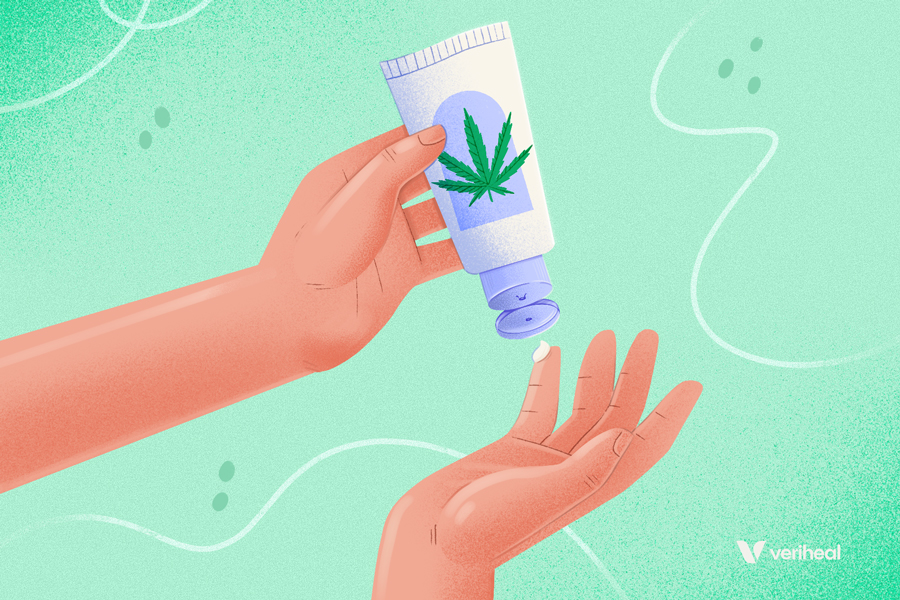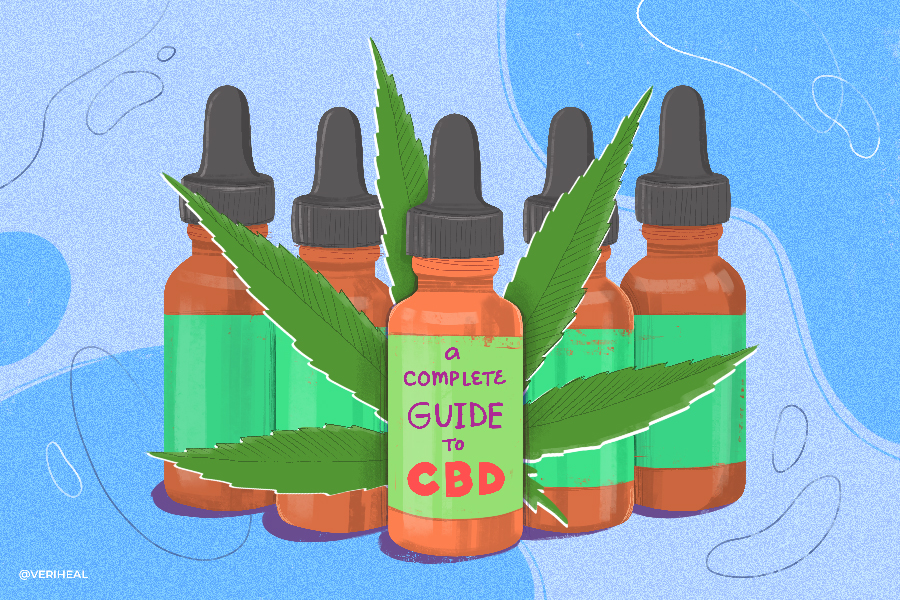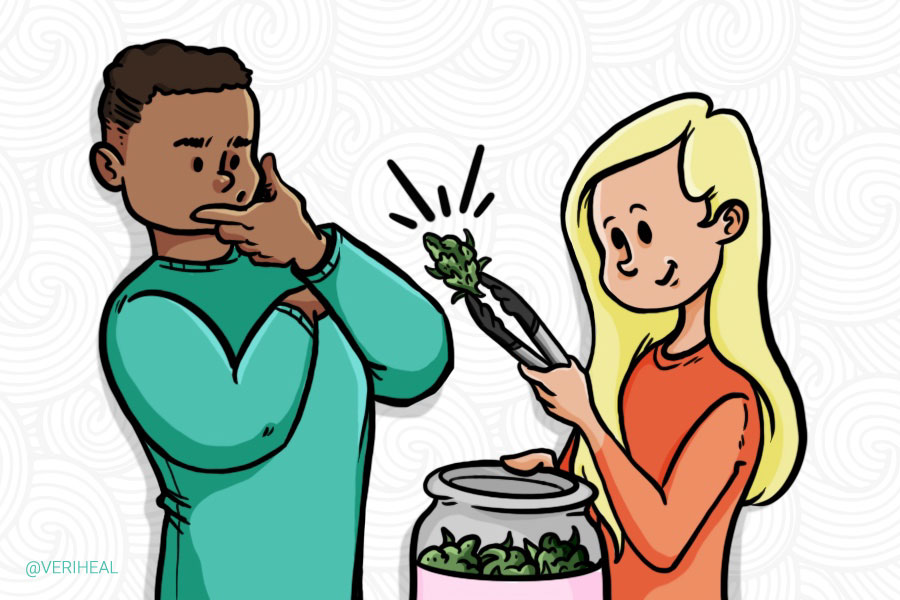Lupus and Medical Cannabis Treatment

Medical Cannabis and Lupus: What You Need to Know
Lupus, a systemic autoimmune disease, presents a challenging medical landscape characterized by inflammation, pain, and a range of debilitating symptoms. Fortunately, medical cannabis has emerged as a potential avenue for symptom management and improving the quality of life for those living with lupus. One notable advantage lies in its capacity to address the chronic pain and inflammation that often accompanies the condition. Through its interaction with the endocannabinoid system, cannabis compounds can modulate pain perception and dampen the inflammatory response, offering relief to individuals burdened by lupus-related discomfort.
Medical cannabis shows promise in alleviating the various symptoms that can arise from lupus, including fatigue, anxiety, and depression. Cannabinoids like THC and CBD possess anxiolytic and mood-stabilizing properties, potentially providing individuals with lupus with a means to cope with the psychological toll of their condition. Additionally, cannabis’s potential to improve sleep quality is particularly relevant for those with lupus, as sleep disturbances are common due to pain and other symptoms. By promoting better sleep patterns, medical cannabis may contribute to overall well-being and assist individuals in managing their lupus more effectively. While additional research is necessary to fully understand the role of medical cannabis in lupus management, its potential as a complementary therapy offers hope for enhancing symptom relief and enhancing the lives of those affected by this complex autoimmune disorder.
The Science Behind Medical Cannabis and Lupus
- How Does the Endocannabinoid System (ECS) Help Treat Lupus?
- Are Cannabinoids a Good Option for Treating Lupus?
- What are the Symptoms of Lupus?
- Talking to Your Doctor About Lupus Diagnosis & Treatments
- Complimentary Lupus Treatments
Medical cannabis is valuable to many patients experiencing lupus, a chronic autoimmune disease resulting from the immune system attacking healthy tissues. Cannabis can target the immune system and slow down this attack.
Lupus can result in tissue damage and extensive inflammation in a patient’s joints, skin, kidneys, and more. Many adults with this medical condition experience frequent and recurring symptom flare-ups throughout their lives, with pain, rashes, and joint swelling.
Although no cure exists for lupus, treatments can help with organ protection, symptom management, and even remission. Failure to get treatment may result in kidney failure, stroke, joint deformities, skin scarring, and other serious effects.
Aside from the conventional treatment methods on offer, such as immunosuppressants, pain relievers, and blood pressure medications, patients might also consider trying medical marijuana – a plant that possesses anti-inflammatory effects.
How Does the Endocannabinoid System (ECS) Help Treat Lupus?
Discovered in the early 1990s, the endocannabinoid system (ECS) is an active and complex cell signaling network. Ingesting medical cannabis and its cannabinoids activates various cellular receptors within this system.
The cellular receptors tell the body to increase or decrease the levels of fat-based neurotransmitters called endocannabinoids. Anandamide (AEA) and 2-arachidonoylglycerol (2-AG) are the most studied endocannabinoids that are responsible for regulating several processes in the body including pain perception, mood regulation, and the functionality of the immune system.
The ECS is part of a bigger bodily system that interacts with several cell receptors and enzymes called the endocannabinoidome (eCBome).
Lupus causes the immune system to become out of balance and start attacking its own cells and tissues. When the immune response becomes weak or overworked, the ECS – which regulates the immune system – also becomes unbalanced.
Patients with systemic lupus erythematosus (SLE) have higher blood cholesterol levels of low-density lipoproteins (LDL) and high-density lipoproteins (HDL) compared to the general population (1). They also exhibit higher levels of cholesterol and glycosphingolipids in T and B immune cell membranes, accelerating inflammation.
T and B cells are an important part of the immune system as they play an essential role in inflammation in the body. The problem is that the higher cholesterol levels cause immune cells to become dysregulated, which leads to the cells incorrectly damaging healthy tissues (1).
Medical cannabis and its cannabinoids, including cannabidiol (CBD) and Δ9-tetrahydrocannabinol (THC), are believed to slow the improper function of the immune system in lupus. Through increasing 2-AG and activating cannabinoid receptor CB2, cannabinoids may reduce the cells’ misguided attacks on healthy tissues (1).
As such, interacting with CB2 receptors may help modulate the immune system and relieve excessive inflammation caused by this condition. CBD and its chemical cousins (CBCA, CBG, CBGA, CBN, CBD, and CBDA) are all non-psychoactive cannabinoids that influence CB2 receptors to varying extents, primarily by increasing endocannabinoids and non-CB receptor activation (2).
Are Cannabinoids a Good Treatment Option for Lupus?
The use of medical marijuana and its cannabinoids have the potential to help ease the following side effects associated with lupus:
- Chronic pain
- Joint pain
- Skin ulcers and rashes
- Sleep disturbances
- Kidney issues
- Slowing down inflammation
- Relieve suffering and improve quality of life
Early-stage research shows that abundant cannabinoids, like CBD, could help manage and even relieve some symptoms. Research focusing on CBD and other chronic autoimmune conditions such as psoriatic arthritis and rheumatoid arthritis indicates that CBD may help to minimize immune and inflammatory responses while improving physical function, sleep, and pain, but further human research is required (3).
A 2017 collection of three case studies tested the use of topical medical cannabis on patients suffering from pyoderma gangrenosum, a skin condition resulting in large, inflammatory, and painful skin ulcers on the leg which is similar to the cutaneous (skin) effects of lupus (4).
The three patients in this study reported daily pain scores and opioid use, and they underwent wound biopsies (4). The patients were prescribed opioids and steroids for wound pain and management before participating in the study.
Each patient was followed during and after topical medical cannabis treatment of MC oil containing roughly equivalent THC and CBD in a near 1:1 ratio (4). One of the patients had a skin lesion as a result of SLE.
All three patients experienced pain reductions of greater than 30%, a marker for clinically significant pain reduction in clinical trials (4). Each patient reported that the pain of the lesion was feeling better 3-5 minutes after applying the MC oil.
This study shows promising results for the use of topical medical cannabis in the treatment of skin issues, including issues caused by SLE. Despite the case studies being small, researchers believe that the results are promising and warrant further investigation.
A statement released by the Lupus Foundation of America supports additional scientific research on the subject of cannabis for lupus. The foundation notes that cannabinoids may offer benefits for similar conditions, but strongly emphasizes the importance of ensuring maximum safety and efficacy of medical marijuana for lupus patients (5).
What Cannabis Preparations Are Suitable for Lupus?
One of the main perks of using medical cannabis to help lupus is the diversity in terms of product options. Various cannabis preparations are available at dispensaries, including:
- Edibles
- Pills, capsules, and tablets
- Cannabis flower
- Transdermal patches for pain
- Topical oils and lotions
- Tinctures
- Suppositories
What are the Symptoms of Lupus?
Lupus can impact various body parts, including the joints, skin, blood, and internal organs, such as the heart and kidneys. As an autoimmune disease that can target different areas, the symptoms may vary, and no two cases are identical.
The signs and symptoms of lupus that you experience will depend on which body systems are affected. The most common signs and symptoms include (6):
- Anemia
- Fever higher than 100 degrees
- Muscle and joint pain commonly in the neck, thighs, shoulders, and upper arms
- Joint swelling
- Blood clotting
- Chest pain
- Eye disease
- Rashes
- Hair loss
- Photosensitivity
- Kidney problems called lupus nephritis
- Mouth ulcers
- Prolonged or extreme fatigue
- Memory problems
Signs and symptoms of lupus may emerge suddenly or develop at a slow pace. They may also be mild or severe and could go away on their own or remain permanently. Most lupus patients are diagnosed with mild cases that include episodes (“flares”) that see the signs and symptoms worsen, improve, and disappear (7) (8).
According to the Lupus Foundation of America, anyone of any age and sex can develop lupus (9). People of African American, Asian American, Hispanic/Latino, Native American, or Pacific Islander ethnicity, as well as females aged 15-44 and those with a family history of autoimmune diseases face a higher risk for lupus.
Lupus Types
Lupus usually refers to the most commonly diagnosed type of immune system disease, systemic lupus erythematosus (SLE). SLE impacts parts of the body including the blood vessels, brain, lungs, joints, kidneys, and skin, and the seriousness ranges from mild to life-threatening (10). Genetics can play a role in developing this disease, which can also transpire due to drug use, infections, or ultraviolet light exposure.
Systemic lupus erythematosus (SLE) affects the highest number of people, but three other types of lupus also exist (8):
Cutaneous Lupus
A standalone type of lupus, cutaneous lupus is sometimes used as a term describing the skin problems that are seen in patients with lupus (11). Much like SLE, this type is considered an autoimmune disorder. It is possible for a patient to have cutaneous lupus on its own or also have SLE (12).
Cutaneous lupus can be categorized into three subtypes (12):
- Acute cutaneous lupus – this is the appearance of a flat, red, and itchy rash that usually appears on the face and cheeks in a symmetrical butterfly pattern. This rash can also appear on the arms and legs. Acute cutaneous lupus is often one of the first hallmark signs of SLE.
- Subacute lupus – can also be a sign of SLE, but it can also appear on its own. Subacute lupus either produces a scaly, red, pimple-like rash called papulosquamous lesions, or it can produce annular lesions which are flat, pink circles with a red exterior border. Subacute lupus can occur anywhere on the body but rarely affects the face.
- Chronic cutaneous lupus – is a standalone type of cutaneous lupus. It often produces round, or discoid, shaped lesions that are pink, thick, and scaly lesions. These lesions typically appear on the face, ears, scalp, neck, and hands. They are not usually itchy, but they may leave dark spots or scars. The scarring on the scalp may result in permanent hair loss.
Drug-Induced Lupus
This is a sneaky type of lupus, and it isn’t really lupus at all, but rather lupus-like (13). Drug-induced lupus is triggered by taking certain prescription drugs including (14):
- Hydralazine, methyldopa, and captopril, used to treat high blood pressure
- Procainamide and quinidine, used for treating irregular heart rhythms
- Isoniazid, a medication used to treat tuberculosis
- Tumor-necrosis factor alpha inhibitors (TNFa) medications such as etanercept, infliximab, and adalimumab
- Minocycline, a type of antibiotic
- Anti-seizure and epilepsy medications
- Chlorpromazine, a type of antipsychotic medication
- Sulfasalazine, used to treat ulcerative colitis and Crohn’s disease
- Levamisole, used to treat parasitic infections in animals and is also a contaminant found in cocaine
- Pembrolizumab and other cancer immunotherapy drugs
It takes several months or years of being on particular medications before developing lupus-like symptoms. Patients may experience muscle and joint pain, swelling, fatigue, flu-like symptoms, and lung and heart inflammation (13).
Drug-induced lupus will typically disappear after the offending medication has been discontinued for at least three to six months (14).
Neonatal Lupus
Considered a pregnancy complication, neonatal lupus is a rare condition that can occur in newborns who have mothers with lupus (15). This is caused by antibodies that are passed from the mother to the baby.
Neonatal lupus babies show signs at birth that include having a photosensitive skin rash, liver problems, and low blood cell counts (16). It also causes fetal heart block (conduction problems). The antibodies and symptoms typically completely disappear after the baby is six to eight months old, however, cardiac complications may remain (17).
Lupus: Causes & Complications
Although doctors remain unsure of the exact cause, many believe that environmental factors, genetics, and hormones could contribute. You could be born with a gene that makes you more susceptible to developing lupus. The disease’s onset could also be triggered by something in your environment (18).
When patients develop an autoimmune disease, the body struggles to protect itself from bacteria, viruses, and other hazardous foreign substances. Patients with lupus, especially if pregnant or planning to become pregnant, need to be mindful of illnesses and reach out to their healthcare providers to avoid severe infections or other complications.
Talking to Your Doctor About Lupus Diagnosis & Treatments
Doctors may ask questions about symptoms, as well as assess your family’s health history. Doctors can perform various blood tests to monitor immune system performance, measure antibodies, and detect signs of inflammation. These include a complete blood count (CBC), liver function test, urinalysis with protein quantification, serum creatinine, and antibody testing (e.g. ANA, etc). The constellation of symptoms and degree of organ involvement are used in diagnosis.
Examples of some other blood tests that may be required for diagnosis include blood-clotting time tests to detect clotting issues, inflammatory markers, and tests to check for organ damage such as imaging and biopsies (19).
After a diagnosis, you can begin discussing the medical uses of cannabis-based treatment options with a doctor. However, note that cannabis should not substitute for other types of doctor-prescribed medications and treatments.
Complementary Lupus Treatments
Patients with this disease often seek out complementary therapies or alternative medicines (CAMs) due to the sometimes unbearable symptoms. One such example is cannabis, which contains a profusion of the naturally occurring compound cannabinoids.
In cases of lupus, people generally welcome dehydroepiandrosterone (DHEA) as another type of complementary medicine alongside natural pain relievers like CBD oil. Supplements containing this hormone may help fight feelings of pain and tiredness.
Some other examples of CAMs that could ease symptoms include fish oil supplements enriched with omega-3 fatty acids, acupuncture, healthy eating, and regular exercise. It is also helpful to avoid smoking, as always (7).
While considering the benefits of medical marijuana and other complementary medicines for lupus, remember to continue using any FDA-approved treatments prescribed by your doctor for yourself or a loved one.
Note: Veriheal does not intend to give this as professional medical advice. Do not attempt to self-diagnose or prescribe treatment based on the information provided on this page. Always consult a physician before making any decisions on the treatment of a medical condition.
1. Navarini, Luca & Vomero, Marta & Donato, Stefano & Currado, Damiano & Berardicurti, Onorina & Marino, Annalisa & Bearzi, Pietro & Biaggi, Alice & Ferrito, Matteo & Ruscitti, Piero & Fava, Marina & Leuti, Alessandro & Cipriani, Paola & Maccarrone, Mauro & Giacomelli, Roberto. (2022). 2-Arachidonoylglycerol Reduces the Production of Interferon-Gamma in T Lymphocytes from Patients with Systemic Lupus Erythematosus. Biomedicines. https://www.researchgate.net/publication/361941887_2-Arachidonoylglycerol_Reduces_the_Production_of_Interferon-Gamma_in_T_Lymphocytes_from_Patients_with_Systemic_Lupus_Erythematosus
2. Turcotte C, Blanchet MR, Laviolette M, Flamand N. (December 2016). The CB2 receptor and its role as a regulator of inflammation. Cell Mol Life Sci. https://www.ncbi.nlm.nih.gov/pmc/articles/PMC5075023/
3. Frane, N., Stapleton, E., Iturriaga, C. et al. (2022). Cannabidiol as a treatment for arthritis and joint pain: an exploratory cross-sectional study. Journal of Cannabis Research. https://jcannabisresearch.biomedcentral.com/articles/10.1186/s42238-022-00154-9
4. Maida, Vincent, Corban, Jason. (2017). Topical Medical Cannabis: A New Treatment for Wound Pain—Three Cases of Pyoderma Gangrenosum. Journal of Pain and Symptom Management. https://www.sciencedirect.com/science/article/pii/S0885392417303512
5. Organizational Statement on Medical Marijuana. (2022). National Resource Center on Lupus. https://www.lupus.org/resources/organizational-statement-on-medical-marijuana
6. Lupus Symptoms. (2022). Centers for Disease Control and Prevention. https://www.cdc.gov/lupus/basics/symptoms.htm
7. Lupus. (2022). Mayo Clinic. https://www.mayoclinic.org/diseases-conditions/lupus/symptoms-causes/syc-20365789
8. What is Systemic Lupus Erythematosus (SLE)? (Updated 2021). National Resource Center on Lupus. https://www.lupus.org/resources/what-is-systemic-lupus-erythematosus-sle
9. What is Lupus? (Reviewed 2020). National Resource Center on Lupus. https://www.lupus.org/resources/what-is-lupus
10. Systemic Lupus Erythematosus (SLE). (Reviewed 2022). Centers for Disease Control and Prevention. https://www.cdc.gov/lupus/facts/detailed.html
11. Lupus and Skin Rashes. (2023). National Resource Center on Lupus. https://www.lupus.org/resources/lupus-and-skin-rashes
12. Types of Cutaneous Lupus. (n.d.). NYU Langone Health. https://nyulangone.org/conditions/cutaneous-lupus/types
13. What is drug-induced lupus? (n.d.). National Resource Center on Lupus. https://www.lupus.org/resources/about-drug-induced-lupus
14. Drug-induced lupus erythematosus. (Reviewed 2023). MedLine Plus. https://medlineplus.gov/ency/article/000446.htm
15. What is neonatal lupus? (2013). National Resource Center on Lupus. https://www.lupus.org/resources/about-neonatal-lupus
16. Angel A. Justiz Vaillant; Amandeep Goyal; Matthew Varacallo. (2022). Systemic Lupus Erythematosus. National Library of Medicine. https://www.ncbi.nlm.nih.gov/books/NBK535405/
17. Christine Capone, Jill P. Buyon, Deborah M. Friedman, and William H. Frishman. (2013). Cardiac Manifestations of Neonatal Lupus: A Review of Autoantibody Associated Congenital Heart Block and its Impact in an Adult Population. National Library of Medicine. https://www.ncbi.nlm.nih.gov/pmc/articles/PMC3275696/
18. Katherine Alexis Athanasiou. (Updated 2023). Lupus Complications: Everything You Need To Know. VeryWell Health. https://www.verywellhealth.com/lupus-complications-5218924
19. Diagnosing Lupus. (2020). National Resource Center on Lupus. https://www.lupus.org/resources/diagnosing-lupus-guide








